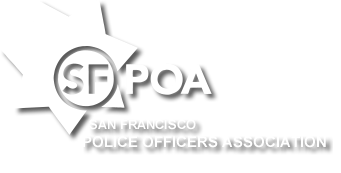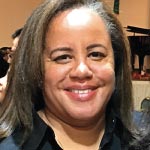Like some horror movie where monster after monster keeps on coming despite the hero's best efforts to slay them, we now see at the close of a summer filled with deep and painful concessions for most public employee unions - indeed, what many had hoped would signal the end of "takeaways," at least for the moment - the approach of fall with a November ballot filled with numerous voter initiatives aimed at further hacking away at public employee pay and benefits. Here's a sampling of what will be before the voters in the Bay Area, come November 2nd:
· In San Francisco, Public Defender Jeff Adachi has sponsored an initiative provocatively entitled "The Sustainable City Employee Benefits Reform Act." If passed by the voters, the initiative would (1) increase the amount of contributions to the SF retirement system required of police officers and fire fighters; (2) prohibit the City from ever agreeing to "pick up" any portion of employee contributions to the retirement system; (3) dramatically increase the cost of health care for all City employees by limiting the City's contributions towards health care to an amount fixed by a ten-county survey and prohibiting the City from ever agreeing to "pick up" more than 50% of dependent care coverage (the City currently picks up more); (4) dramatically increase the cost of dental care by prohibiting the City from ever agreeing to contribute more than 75% of employee coverage and 50% of dependent coverage; and (5) impose a penalty if the unions successfully challenge any of the initiative's provisions in court by prohibiting the City from agreeing for a period of five years to any pay raise whatsoever for its employees and requiring further that any raise nevertheless awarded by an arbitrator be submitted to a vote by the public.
· In San Jose, the Mayor and a majority of the City Council have sponsored two initiatives, one of which, if approved by the voters, would erode the binding interest arbitration procedure that levels the playing field in contract negotiations between the City and its public safety unions and the other of which would afford the Council unfettered authority over new hires' access to the SJ retirement system, thereby paving the way for a second tier of retirement benefits or, conceivably, no retirement benefits at all.
· In Menlo Park, a group called Citizens for Fair and Responsible Pension Reform has sponsored an initiative that would, if passed by the voters, require the City to reduce the retirement benefits it provides to new employees (other than sworn police officers) and would restrain the City Council from increasing such benefits for any employees in the future without first obtaining voter approval.
Taken together, these measures disclose a disturbing new trend: an attempt to extract economic concessions from public sector workers by end-running the collective bargaining process and going directly to the voters over matters that state law presumably requires be dealt with at the negotiation table, in talks between employer and employees. Imagine, if you will, a private sector worker whose salary is put to a vote by the public and you have something approaching what is afoot here.
But of course the counterargument from the proponents of such initiatives is obvious: surely, one must realize that these are the public's servants we are talking about - the taxpayers clearly have some role in what their employees, so to speak, receive as pay and benefits, do they not? My counter, in turn, is this: Yes, but the taxpayers already have spoken on this subject given that their elected representatives, i.e., the state legislature, voted into law decades ago the collective bargaining process (e.g., the Meyers-Milias-Brown Act) by which the pay and benefits of California's public employees are to be determined. Barring sweeping changes in the law at the state level, the manner in which local government determines its employees' compensation cannot and should not be a function of a plebiscite.
This is particularly true in an economic climate like the present where local demagogues, who oppose public employee unions per se, seek to turn the very real suffering of those out of work or making substantially less than their public sector counterparts against these same men and women whose unions struggled for years to achieve the benefits now at issue. As I wrote in these pages several months ago, it is a tactic as old as the hills to pit one group of more successful workers against their beleaguered counterparts in the contemptible effort to drive all down to a lower level. We must not let the proponents of these "takeaway" initiatives succeed in hiding what amounts to class warfare behind the veneer of "democracy" and the "people's right to vote." A popular vote on how much employees will earn is a fundamental misuse of the democratic process.
So, to be sure, there will be legal challenges mounted against some of these initiatives. And our opponents will surely attack those challenges as "undemocratic." Indeed, it remains an open question whether such lawsuits against this swarm of killer initiatives will succeed. As a management labor lawyer colleague of mine said recently, "Anybody who thinks they know how the courts are going to resolve the coming conflict between collective bargaining laws and democratic votes whittling down the wages/benefits achieved via those laws is full of it." But for the reasons I've tried to highlight here, I remain convinced that a plebiscite is no way to determine employee compensation.
And irrespective of whether the courts agree with such a position, our case ultimately needs to be made to the public. Public sentiment, like the law, can be changed. We need to show the voting public why these initiatives are misguided, why they are the equivalent of monsters visited upon the innocent and undeserving - monsters created by demagogues masked as democrats.
"Roll the Union On . . ."

